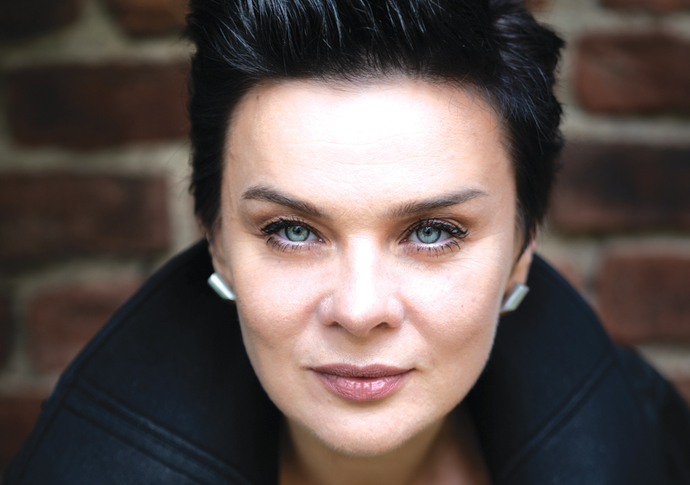Michael White’s classical news: Dead Man Walking; The Makropulos Case; Der Wald; London Festival of Baroque Music
Friday, 31st October 2025 — By Michael White

Soprano Ausrine Stundyte [Dominik Odenkirchen]
THERE’S a mistaken tendency to think of opera as past history. It isn’t. And among recent proofs has been the phenomenal success of Jake Heggie’s Dead Man Walking, which premiered in 2000, has travelled the world ever since, and finally reaches the London Coliseum in a new English National Opera production running Nov 1-18.
It’s a harrowing piece, based on fact, about encounters between an American nun and a convicted killer awaiting execution on death row. You may know it from the book the Sr Helen Prejean wrote of her experience, or from the movie that followed. But the visceral experience of these characters singing their stories with the emotional intensity of grand opera is something else. And Heggie’s score doesn’t pull punches.
ENO is in faltering health these days; but if it gets its act together and delivers what this opera deserves, the result should be a highlight of the season. eno.org
• That said, there’s another likely highlight playing against it at the Royal Opera House in Janáček’s dark fantasy The Makropulos Case. Running Nov 4-21, it concerns a mysterious woman who has acquired the secret of eternal life but, after 300 years of it, decides she can’t face any more. An understandable conclusion, though it takes her long enough to reach it.
The central role is a colossus that’s attracted some of the great dramatic voices of modern times (I’ll never forget Anja Silja in a classic Glyndebourne production from years back). Covent Garden has Lithuanian soprano Ausrine Stundyte. Jakub Hrusa conducts. And the staging is by Katie Mitchell who takes an expectedly feminist line with it. A must-see. rbo.org.uk
• Less of a blockbuster but still interesting is an operatic coupling at the Guildhall School, Nov 3-10, of two one-acters: Ethel Smyth’s Der Wald (The Forest) and Respighi’s Lucrezia. The Smyth piece was the first ever opera by a woman to play the New York Met, in 1903, but then disappeared into obscurity. The Respighi treats the same subject as Britten’s Rape of Lucretia but predates it by 10 years. And if you’ve ever seen either of these rarities in performance, you’re one up on me. gsmd.ac.uk
• Period performance fans will be camping out at St John’s Smith Square this week, because the London Festival of Baroque Music runs there Nov 1-8 with a full-on programme. Highlights include the ensemble Arcangelo playing all six of Bach’s Brandenburg Concertos, Nov 1; the Tallis Scholas singing more Bach, Nov 2; and the phenomenal French harpsichordist Jean Rondeau, Nov 4, playing, er, Bach. But proving other composers are available, there’s also a Nov 5 celebration of the late Claire Van Kampen who put together the haunting period-style soundtrack for TV’s Wolf Hall, involving her husband Mark Rylance. sinfoniasmithsq.org.uk
• Meanwhile, it’s a good week for English music. At Temple Church, Nov 4, there’s a programme for the 70th birthday of composer Ian Venables, with his own rapturously lyrical songs playing alongside Howells and Butterworth: templemusic.org. Nov 5 sees a grand event with the RPO at St Paul’s Cathedral for the 80th birthday of John Rutter: rpo.co.uk – And Hampstead Collective perform works from Purcell to Tippett at Hampstead Parish Church, Nov 3: thehampsteadcollective.com Never say (as the Germans used to) that England is a land without music.